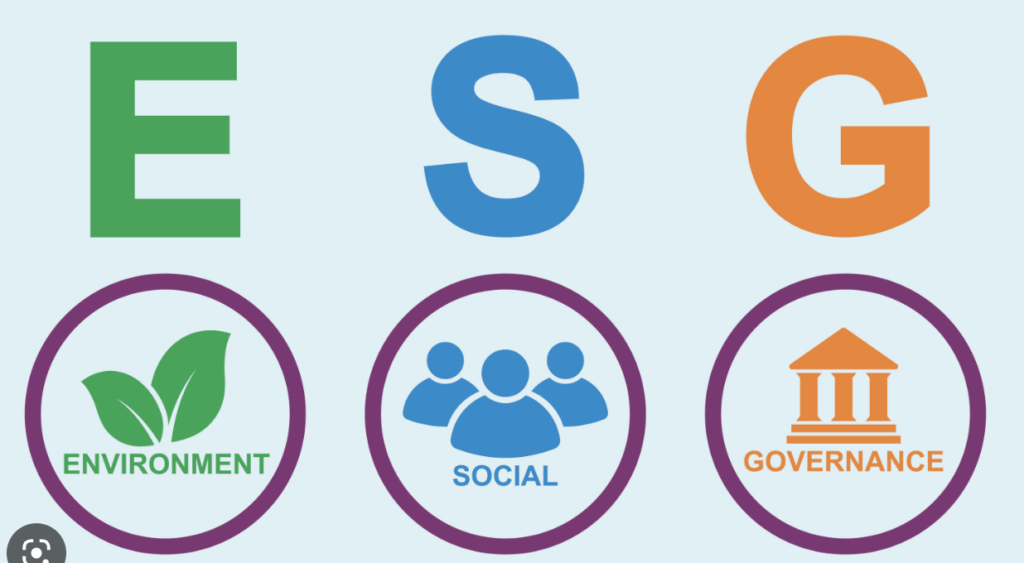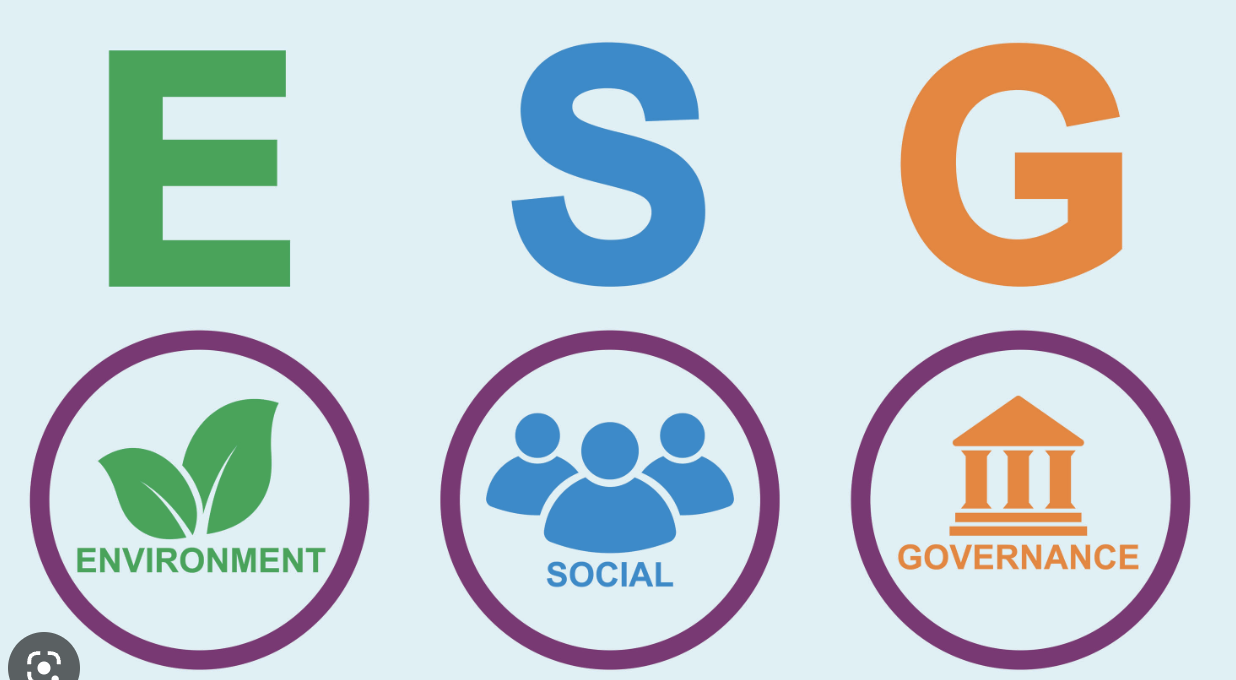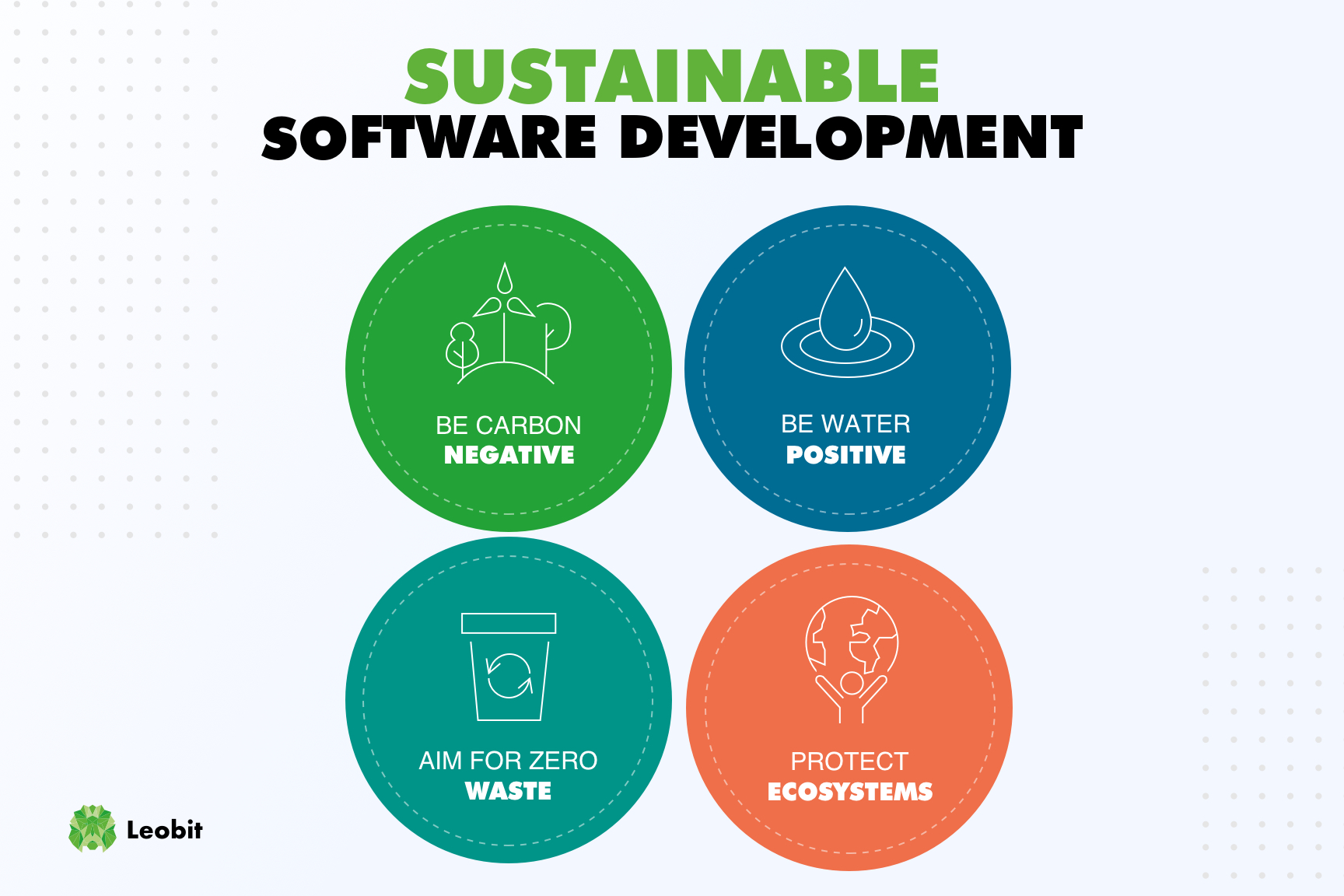
Background
As the world becomes increasingly aware of the impact that businesses have on society and the environment, there has been a growing interest in ESG. But what exactly is ESG meaning? In this blog post, we will explore the meaning of ESG, its importance, and how it can be implemented in businesses.
ESG Meaning and What it stands for
ESG stands for Environmental, Social, and Governance. These are the three key factors that are used to measure the sustainability and ethical impact of a business. Environmental factors refer to a company’s impact on the natural world, including its use of resources, pollution levels, and carbon footprint. Social factors relate to a company’s impact on society, including its treatment of employees, customers, and the community. Governance factors refer to a company’s management structure, accountability, and transparency.
Importance of ESG
Now that we are understanding the ESG meaning, it is important to focus on the importance of ESG. Not only does it help businesses to operate in a more sustainable and ethical manner, but it also has a positive impact on the bottom line. Studies have shown that companies that prioritize ESG tend to have better financial performance, lower risk of bankruptcy, and higher levels of innovation.
Implementing ESG
Implementing ESG in a business can be a complex process as compared to just understanding the ESG meaning, but there are a few key steps that can be taken. The first step is to assess the current state of the business in terms of ESG performance. This can involve analyzing data on energy use, emissions, waste, and other environmental factors, as well as conducting surveys and interviews with employees and stakeholders to gauge social and governance factors.
Once the current state has been assessed, the next step is to set goals and targets for improvement. These goals should be specific, measurable, achievable, relevant, and time-bound. For example, a company might set a goal of reducing its carbon footprint by 50% by 2030, or increasing the number of women in leadership positions by 25% within the next five years.
To achieve these goals, businesses will need to implement a range of strategies and initiatives. This might include investing in renewable energy, improving supply chain sustainability, developing a diversity and inclusion program, or implementing better governance practices. It is important to engage all stakeholders in this process, including employees, customers, investors, and community members.
Monitoring and reporting on ESG performance
Monitoring and reporting on ESG performance is also essential. This involves tracking progress towards goals, collecting and analyzing data on ESG factors, and reporting on this information to stakeholders. Transparency is key here, as it helps to build trust and credibility with stakeholders and demonstrate a commitment to sustainability and ethical business practices.
ESG is becoming increasingly important for businesses, as customers, investors, and regulators demand greater transparency and accountability. By prioritizing ESG, businesses can not only improve their sustainability and ethical impact, but also benefit from improved financial performance, lower risk, and higher levels of innovation.
ESG Reporting Standards
There are several well-known ESG reporting standards that are widely used by companies and organizations around the world. These standards provide a framework for reporting on a range of environmental, social, and governance factors, and are designed to promote transparency, accountability, and sustainability.
Here are some of the most famous ESG reporting standards:
- Global Reporting Initiative (GRI) Standards: The GRI Standards are widely recognized as the leading global framework for ESG reporting. They provide guidance on how to report on a range of sustainability factors, including environmental, social, and governance factors. The GRI Standards are used by thousands of companies and organizations around the world.
- Sustainability Accounting Standards Board (SASB) Standards: The SASB Standards provide a standardized framework for reporting on ESG factors that are material to a company’s financial performance. They cover a range of industries and ESG factors, and provide guidance on how to report on these factors.
- Task Force on Climate-related Financial Disclosures (TCFD) Recommendations: The TCFD Recommendations provide guidance on how companies should disclose climate-related risks and opportunities in their financial filings. They are designed to help companies and investors better understand the financial implications of climate change.
- Carbon Disclosure Project (CDP): The CDP is a global disclosure system that enables companies and organizations to measure and disclose their environmental impact. The CDP provides guidance on how to report on carbon emissions, energy use, and other environmental factors.
- United Nations Global Compact (UNGC): The UNGC is a voluntary initiative that encourages companies to adopt sustainable and socially responsible policies and practices. It provides a framework for companies to report on their progress towards achieving the UN’s Sustainable Development Goals.
- ISO 26000: The ISO 26000 standard provides guidance on social responsibility and sustainable development. It covers a range of issues, including human rights, labor practices, environmental sustainability, and community engagement.
These are just a few examples of the most famous ESG reporting standards. Other standards include the Dow Jones Sustainability Index, the FTSE4Good Index, and the Principles for Responsible Investment (PRI). Companies and organizations may choose to adopt one or more of these standards to guide their ESG reporting and to demonstrate their commitment to sustainability and responsible business practices.
Global Reporting Initiative (GRI) Standards
The Global Reporting Initiative (GRI) is a widely recognized standard for sustainability reporting that provides a framework for companies and organizations to report on their environmental, social, and governance (ESG) performance. The GRI Standards are developed through a multi-stakeholder process and are updated regularly to reflect changes in sustainability best practices and emerging issues.
The GRI Standards cover a wide range of sustainability issues, including climate change, human rights, labor practices, biodiversity, and community engagement. They are used by thousands of companies and organizations around the world, including many of the world’s largest corporations.
The GRI Standards provide a comprehensive and standardized approach to sustainability reporting that enables companies to compare their performance over time and benchmark themselves against their peers. The reporting framework is flexible and can be adapted to the specific needs of different organizations and industries.
One of the key benefits of using the GRI Standards is that they help companies to improve their sustainability performance by identifying areas for improvement and setting targets for future progress. They also enhance transparency and accountability, enabling stakeholders to better understand a company’s sustainability performance and make informed decisions.
In summary, the GRI Standards provide a robust framework for ESG reporting that is widely recognized and respected by stakeholders around the world. Companies and organizations that adopt the GRI Standards demonstrate their commitment to sustainability and responsible business practices, and are better positioned to meet the growing demand for ESG disclosure and transparency.
Sustainability Accounting Standards Board (SASB) Standards
The Sustainability Accounting Standards Board (SASB) Standards are a set of industry-specific reporting standards that help companies identify and report on sustainability issues that are most material to their business operations and financial performance. The standards cover a range of sustainability factors, including environmental, social, and governance (ESG) issues, and are designed to help companies improve their sustainability performance and enhance transparency and accountability.
The SASB Standards are developed through a rigorous process of research, consultation, and stakeholder engagement, and are regularly updated to reflect changes in sustainability best practices and emerging issues. They are industry-specific, covering over 75 industries across 11 sectors, and provide guidance on how to report on ESG issues that are most relevant and material to each industry.
One of the key benefits of using the SASB Standards is that they help companies to better understand the link between sustainability issues and financial performance. By reporting on ESG factors that are most material to their business, companies can identify risks and opportunities that may impact their long-term financial performance, and take steps to mitigate risks and capitalize on opportunities.
The SASB Standards also promote comparability and consistency in sustainability reporting, enabling companies to benchmark their performance against their peers and investors to make more informed decisions. The standards are widely recognized and respected by investors and other stakeholders, and are increasingly being used by companies as a basis for their sustainability reporting.
In addition to the SASB Standards themselves, the SASB provides a range of resources and tools to help companies implement the standards effectively. These include guidance documents, training and education programs, and a searchable database of sustainability disclosures from companies that use the standards.
In summary, the SASB Standards provide a comprehensive and industry-specific framework for reporting on sustainability issues that are most material to a company’s business operations and financial performance. By using the SASB Standards, companies can improve their sustainability performance, enhance transparency and accountability, and better meet the growing demand for ESG disclosure and transparency.
Task Force on Climate-related Financial Disclosures (TCFD) Recommendations
The Task Force on Climate-related Financial Disclosures (TCFD) Recommendations are a set of voluntary, consistent disclosure recommendations that help companies and organizations assess and report on the risks and opportunities associated with climate change. The recommendations were developed by an international group of experts convened by the Financial Stability Board, and are designed to help companies improve their climate-related financial disclosures and provide investors and other stakeholders with more transparent and useful information.
The TCFD Recommendations cover four key areas: governance, strategy, risk management, and metrics and targets. These areas are designed to help companies understand and report on the financial impact of climate change on their business, and to help investors make more informed decisions about their investments.
One of the key benefits of using the TCFD Recommendations is that they help companies to better understand the financial risks associated with climate change, including physical risks (such as extreme weather events and sea level rise) and transition risks (such as policy and technological changes). By reporting on these risks, companies can identify opportunities to improve their resilience and capitalize on new business opportunities.
The TCFD Recommendations also enhance transparency and accountability, enabling stakeholders to better understand a company’s climate-related risks and opportunities and make informed decisions. They are widely recognized and respected by investors and other stakeholders, and are increasingly being used by companies as a basis for their climate-related financial disclosures.
In addition to the TCFD Recommendations themselves, the TCFD provides a range of resources and tools to help companies implement the recommendations effectively. These include guidance documents, case studies, and a knowledge hub that provides access to the latest research and best practices in climate-related financial reporting.
In summary, the TCFD Recommendations provide a comprehensive and consistent framework for reporting on the financial risks and opportunities associated with climate change. By using the TCFD Recommendations, companies can improve their climate-related financial disclosures, enhance transparency and accountability, and better meet the growing demand for climate-related disclosure and transparency.
Carbon Disclosure Project (CDP)
The Carbon Disclosure Project (CDP) is a global non-profit organization that runs a system for companies and cities to disclose their environmental impact and management strategies. The CDP provides a platform for companies to voluntarily disclose information on their carbon emissions, water use, and other environmental impacts, as well as their efforts to manage and reduce these impacts.
The CDP was founded in 2000 and has since become one of the most widely recognized and respected organizations for environmental disclosure and transparency. It has built a network of thousands of companies and cities worldwide that report to the CDP each year, with the aim of providing investors and other stakeholders with more accurate and comprehensive information on companies’ environmental performance.
One of the key benefits of using the CDP is that it helps companies to better understand their environmental impacts and identify areas where they can improve their sustainability performance. By disclosing information on their carbon emissions, water use, and other environmental factors, companies can identify risks and opportunities associated with their operations and take steps to mitigate those risks and capitalize on opportunities.
The CDP also promotes transparency and accountability, enabling stakeholders to better understand a company’s environmental impacts and management strategies and make more informed decisions. Its ratings and rankings are widely recognized and respected by investors and other stakeholders, and are increasingly being used as a basis for investment and purchasing decisions.
In addition to its disclosure platform, the CDP also provides a range of tools and resources to help companies manage their environmental impacts and improve their sustainability performance. These include guidance documents, case studies, and access to a network of sustainability experts and practitioners.
In summary, the Carbon Disclosure Project provides a comprehensive and widely recognized platform for companies to disclose their environmental impacts and management strategies. By using the CDP, companies can improve their sustainability performance, enhance transparency and accountability, and better meet the growing demand for environmental disclosure and transparency.
United Nations Global Compact (UNGC)
The United Nations Global Compact (UNGC) is a voluntary initiative launched by the United Nations in 2000 to encourage companies and organizations to adopt sustainable and socially responsible policies and practices. The UNGC is the world’s largest corporate sustainability initiative, with more than 12,000 signatories from over 160 countries.
The UNGC is based on ten principles that cover four main areas: human rights, labor rights, the environment, and anti-corruption. The ten principles are designed to help companies and organizations align their strategies and operations with universal principles on human rights, labor, environment, and anti-corruption, and to take actions that advance societal goals.
One of the key benefits of participating in the UNGC is that it provides a framework for companies to develop and implement sustainable and socially responsible policies and practices. By committing to the ten principles, companies can align their values with those of the United Nations and take steps to ensure that their operations have a positive impact on society and the environment.
The UNGC also provides a range of tools and resources to help companies implement sustainable and socially responsible practices. These include guidance documents, training materials, and access to a network of sustainability experts and practitioners. By using these resources, companies can improve their sustainability performance and enhance their ability to address complex sustainability challenges.
In addition, the UNGC provides a platform for companies to engage with each other and with other stakeholders, including governments, civil society organizations, and investors. Through this platform, companies can share best practices, collaborate on sustainability initiatives, and demonstrate their commitment to sustainability and social responsibility.
The UNGC is also recognized by investors and other stakeholders as a leading initiative on corporate sustainability. Companies that participate in the UNGC are seen as leaders in their industries and are more likely to attract investment and secure partnerships with other companies and organizations that share their commitment to sustainability.
In summary, the United Nations Global Compact provides a comprehensive and widely recognized platform for companies and organizations to adopt sustainable and socially responsible policies and practices. By participating in the UNGC, companies can improve their sustainability performance, enhance transparency and accountability, and better meet the growing demand for corporate sustainability and social responsibility.
ISO 26000
ISO 26000 is a voluntary international standard that provides guidance on social responsibility. It was developed by the International Organization for Standardization (ISO) and published in 2010. The standard provides guidance to organizations of all types and sizes on how to integrate social responsibility into their operations and strategies.
The ISO 26000 standard is based on seven core subjects of social responsibility: organizational governance, human rights, labor practices, the environment, fair operating practices, consumer issues, and community involvement and development. These core subjects are further broken down into 37 issues that organizations should consider when implementing social responsibility practices.
One of the key benefits of using the ISO 26000 standard is that it provides a comprehensive framework for social responsibility that is recognized globally. By adopting the standard, organizations can demonstrate their commitment to social responsibility and align their practices with international best practices.
The ISO 26000 standard also provides guidance on how organizations can integrate social responsibility into their operations and strategies. This includes guidance on how to identify and engage stakeholders, how to assess social responsibility risks and opportunities, and how to develop and implement social responsibility policies and practices.
In addition, the ISO 26000 standard encourages organizations to take a holistic approach to social responsibility, considering the needs and interests of all stakeholders, including employees, customers, suppliers, and communities. By taking this approach, organizations can build trust and credibility with their stakeholders and enhance their reputation as a socially responsible organization.
Another benefit of using the ISO 26000 standard is that it can help organizations to better manage their social responsibility risks and opportunities. By identifying and addressing social responsibility issues, organizations can avoid negative impacts on their reputation and enhance their ability to attract and retain customers, employees, and other stakeholders.
The ISO 26000 standard is also designed to be flexible and adaptable to the needs and contexts of different organizations. It recognizes that social responsibility practices can vary depending on the size, sector, and location of an organization, and provides guidance on how to tailor social responsibility practices to these different contexts.
In summary, the ISO 26000 standard provides a comprehensive framework for social responsibility that is recognized globally. By adopting the standard, organizations can demonstrate their commitment to social responsibility, better manage their social responsibility risks and opportunities, and build trust and credibility with their stakeholders.
Dow Jones Sustainability Index (DJSI)
The Dow Jones Sustainability Index (DJSI) is a family of indices that tracks the performance of companies based on their sustainability practices. The indices are created by S&P Dow Jones Indices in partnership with RobecoSAM, a sustainability investment firm. The DJSI is widely regarded as the leading benchmark for sustainability performance in the global financial markets.
The DJSI evaluates companies on a range of sustainability criteria, including environmental, social, and governance (ESG) factors. The criteria are based on the United Nations’ Sustainable Development Goals (SDGs) and cover a range of topics, such as climate change, water management, human rights, labor practices, and corporate governance.
Companies are selected for inclusion in the DJSI based on a comprehensive assessment of their sustainability practices. This assessment includes both a company questionnaire and an analysis of publicly available information, such as annual reports and sustainability reports.
The DJSI is a useful tool for investors who are interested in sustainability and ESG factors. The indices can help investors identify companies that are leaders in sustainability performance and are likely to perform well over the long term. The DJSI also provides investors with a way to compare the sustainability performance of companies across different sectors and regions.
In addition to providing a benchmark for sustainability performance, the DJSI also provides companies with a framework for improving their sustainability practices. By participating in the DJSI assessment process, companies can identify areas for improvement and benchmark their performance against their peers.
Being included in the DJSI can also enhance a company’s reputation and help it to attract socially responsible investors. Companies that are included in the DJSI are seen as leaders in sustainability performance and are more likely to be attractive to investors who prioritize ESG factors in their investment decisions.
The DJSI has evolved over time to reflect changing sustainability priorities and trends. For example, in recent years, the DJSI has placed increased emphasis on climate change and the transition to a low-carbon economy. The DJSI also includes a separate index for companies that are leaders in sustainable water management practices.
In summary, the Dow Jones Sustainability Index is a family of indices that tracks the sustainability performance of companies. The indices are based on a comprehensive assessment of companies’ sustainability practices and are widely recognized as the leading benchmark for sustainability performance in the global financial markets. The DJSI is a useful tool for investors who are interested in sustainability and ESG factors, and can also help companies improve their sustainability practices and enhance their reputation.
FTSE4Good Index
The FTSE4Good Index Series is a family of indices that measure the performance of companies based on their environmental, social, and governance (ESG) practices. The indices are created by FTSE Russell, a global index provider, and are widely recognized as a leading benchmark for sustainability performance in the financial markets.
To be included in the FTSE4Good Index, companies must meet certain criteria related to ESG practices. These criteria are based on international standards and best practices and cover a range of topics, such as climate change, human rights, labor standards, and anti-corruption measures. Companies must also demonstrate a commitment to improving their ESG practices over time.
The FTSE4Good Index is a useful tool for investors who are interested in sustainability and ESG factors. The indices can help investors identify companies that are leaders in sustainability performance and are likely to perform well over the long term. The FTSE4Good Index also provides investors with a way to compare the sustainability performance of companies across different sectors and regions.
In addition to providing a benchmark for sustainability performance, the FTSE4Good Index also provides companies with a framework for improving their ESG practices. By participating in the index, companies can identify areas for improvement and benchmark their performance against their peers.
Being included in the FTSE4Good Index can also enhance a company’s reputation and help it to attract socially responsible investors. Companies that are included in the index are seen as leaders in sustainability performance and are more likely to be attractive to investors who prioritize ESG factors in their investment decisions.
Overall, the FTSE4Good Index Series is a valuable tool for investors and companies that are committed to sustainability and ESG practices. The indices provide a comprehensive framework for measuring and improving sustainability performance and are widely recognized as a leading benchmark for sustainability performance in the financial markets.
Principles for Responsible Investment (PRI)
The Principles for Responsible Investment (PRI) is a global network of investors who are committed to incorporating environmental, social, and governance (ESG) factors into their investment decision-making and ownership practices. The PRI was launched in 2006 by the United Nations and is now the world’s leading proponent of responsible investment.
The PRI consists of six principles that provide a framework for incorporating ESG factors into investment practices. These principles are voluntary and aspirational, and signatories are encouraged to implement them in a way that is appropriate for their investment strategies and asset classes. The six principles are:
- Incorporating ESG factors into investment analysis and decision-making.
- Being active owners and incorporating ESG factors into ownership policies and practices.
- Seeking appropriate disclosure on ESG issues by the entities in which they invest.
- Promoting acceptance and implementation of the principles within the investment industry.
- Working together to enhance effectiveness in implementing the principles.
- Reporting on progress towards implementing the principles.
By signing on to the PRI, investors demonstrate their commitment to responsible investment and their willingness to work towards a more sustainable global financial system. The PRI provides a framework for investors to incorporate ESG factors into their investment practices, which can lead to better long-term investment outcomes, reduce risk, and promote sustainable economic growth.
PRI has over 4,000 signatories from around the world, including asset owners, investment managers, and service providers. These signatories represent over $100 trillion in assets under management and have a significant impact on global capital markets. The PRI is a powerful force for promoting responsible investment practices and creating a more sustainable financial system.
Conclusion
In conclusion, ESG is a term that refers to the three key factors of environmental, social, and governance that are used to measure the sustainability and ethical impact of a business. It is important for businesses to prioritize ESG, as it can lead to improved financial performance, lower risk, and higher levels of innovation. Implementing ESG involves assessing the current state of the business, setting goals and targets for improvement, implementing strategies and initiatives, and monitoring and reporting on ESG performance.
Read More on Sustainability


